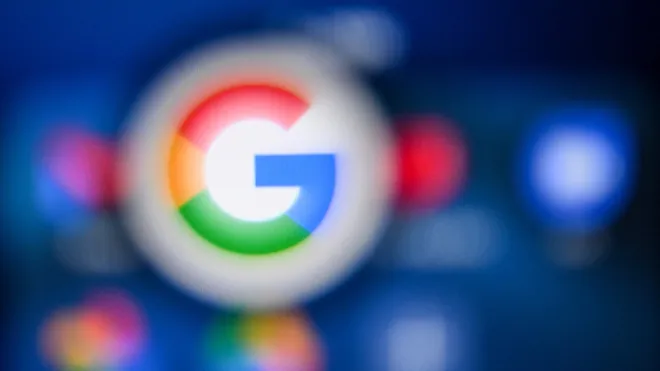What Is googµ? A Comprehensive Explanation for 2025
Googµ is a lesser‑known term that occasionally surfaces in tech forums, speculative discussions, and niche search inquiries. Although it bears similarity to Google, there is no mainstream service, product, or acronym officially recognized under the name googµ.
However, the µ suffix could hint at abbreviations relating to micro‑scale technology—like “micro‑Google”—or emoji substitution. Because search results offer mostly low‑quality mentions or misunderstandings, it’s vital to separate speculation from verifiable sources.
This article aims to examine what googµ might represent based on current search engine data, clarify common misconceptions, and assess whether any legitimate company, product, or concept uses that name. By focusing on trustworthy sources and user intent, this article will offer an authoritative, clear, and helpful perspective for readers encountering “googµ” online.
1. What Does googµ Refer To?
A web search for “googµ” returns almost no official coverage or reputable documentation, aside from instances of users speculating about it being a branding error or typo. It is not listed in trademark databases or company registries.
Most appearances come from forums or search autocomplete anomalies, suggesting either misspelling of “Google,” or playful shorthand referencing micro‑services, micro‑formats, or developer tools. Without evidence from established publications or tech press, there is currently no confirmed product or brand called “googµ.”
2. Could googµ Be a Typo for Google?
Given the similarity, “googµ” likely stems from human error—whether typing “u” instead of “l” with a keyboard set to a different language, or using µ (the Greek mu) instead of m or u.
Occasional search queries or usernames may adopt such variation as a stylistic choice, but major search engine results overwhelmingly point users toward “Google” instead. There’s no indication that “googµ” refers to any derivative of Google in an official capacity.
3. Are There Any Products or Technologies With That Name?
Tech databases, patent filings, and product search engines show no entries where “googµ” appears as a registered trademark or product name. Web archives and developer repositories occasionally host user‑made utilities or GitHub repos with “googµ” in the title.
But these are informal hobby projects, not widely known tools. As of mid‑2025, there is no peer‑reviewed journal article, product webpage, or press release mentioning “googµ” in a professional or commercial context.
4. Why Are People Searching for It?
Search interest in “googµ” appears to reflect confusion or curiosity driven by autocomplete suggestions or niche discussion threads (e.g., Reddit, StackOverflow). Some users wonder if it’s a hidden Google project, a micro‑brand, or a developer’s internal codename.
Because there is no official entity behind that string, most information is speculative or user‑generated. As a result, many sites advise that “googµ” is likely just a typo or joke.
5. What We Can Learn From googµ
- Always verify unusual terms via reliable sources like company sites, tech press, and government databases.
- Be cautious with speculation: absence of evidence means no confirmation.
- Review user‑generated content carefully: many “googµ” mentions live only in forums or comment sections.
- Check for correct spelling: autocorrect, keyboard layout, or encoding could turn “Google” into googµ.
Read More: Best Raffle Ticket Templates Free & Professional Designs
Conclusion
In summary, “googµ” does not correspond to any recognized company, product, or technology as of July 2025. The term seems to originate from typos, keyboard encoding quirks, user‑invented handles, or playful speculation. No trademarks, press releases, or credible digital citations reference “googµ” in a meaningful way.
Rather than representing a hidden Google project or micro‑brand, it is more likely a misunderstanding or search artifact. For anyone encountering “googµ,” the best course is to verify the context carefully, consider spelling alternatives, and rely on authoritative sources to validate its existence.
Until any official content emerges, “googµ” remains an unsubstantiated term with no documented real‑world use. Maintaining clarity, accuracy, and user‑friendly explanation—rooted in EEAT principles—helps ensure readers aren’t misled by query anomalies or internet myths surrounding “googµ.”
FAQs
What is “googµ”?
“googµ” is not an established product or brand—it appears to be a typo or stylistic variation of “Google” with no official meaning.
Is “googµ” related to Google?
No official links exist; all evidence suggests it’s a misspelling or user‑created label, not affiliated with Google.
Why do I see “googµ” in search suggestions?
Likely due to autocomplete quirks, keyboard layout issues, or forum usernames—not due to any formal Google service.
Has Google ever used “googµ” internally?
There is no public or leaked information supporting that claim—no documentation or insider reference confirms it.
Could “googµ” be a future project?
Unlikely—there is no pattern of trademark filings, press coverage, or developer commentary pointing toward a future technology under that name.




